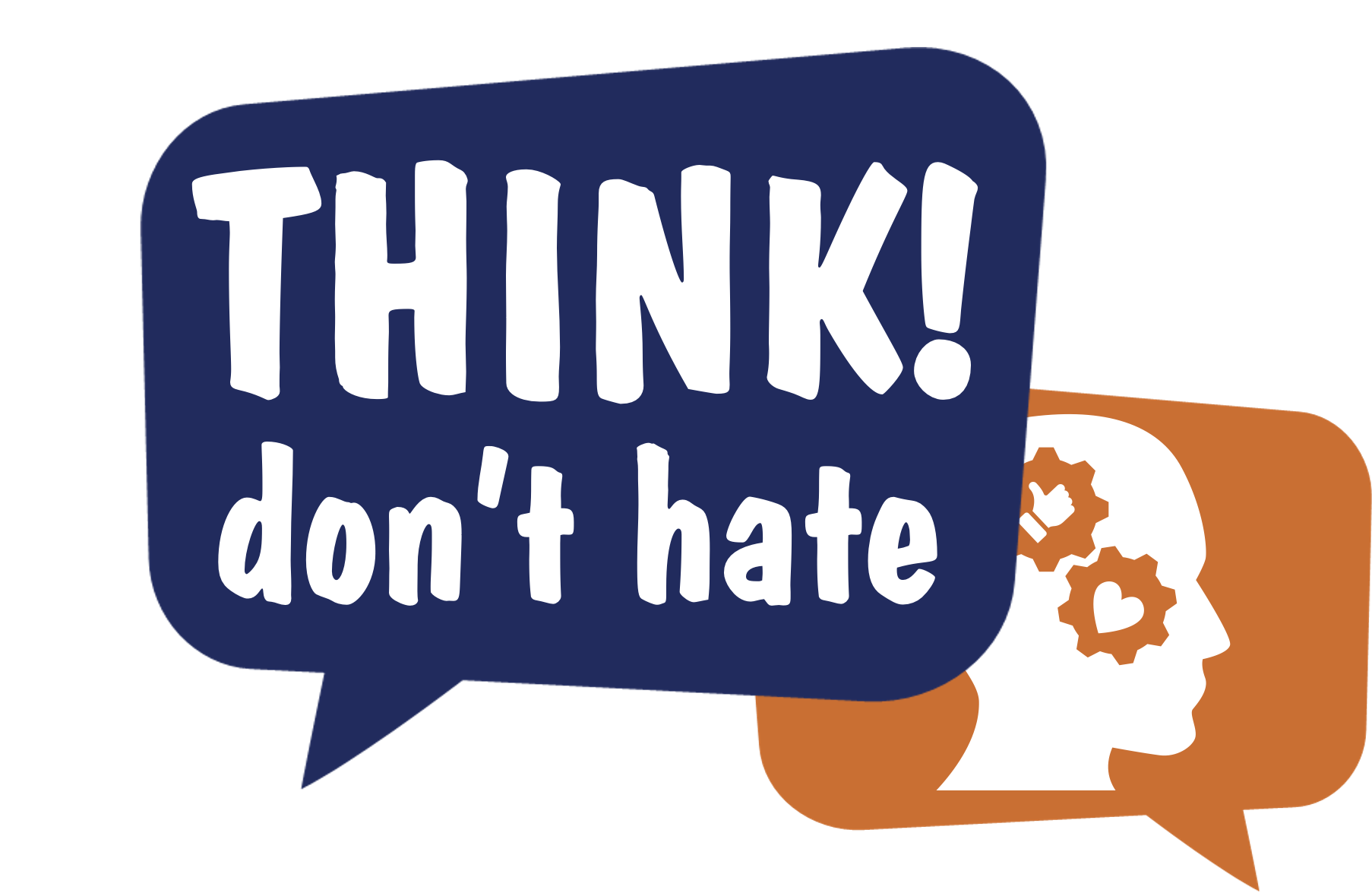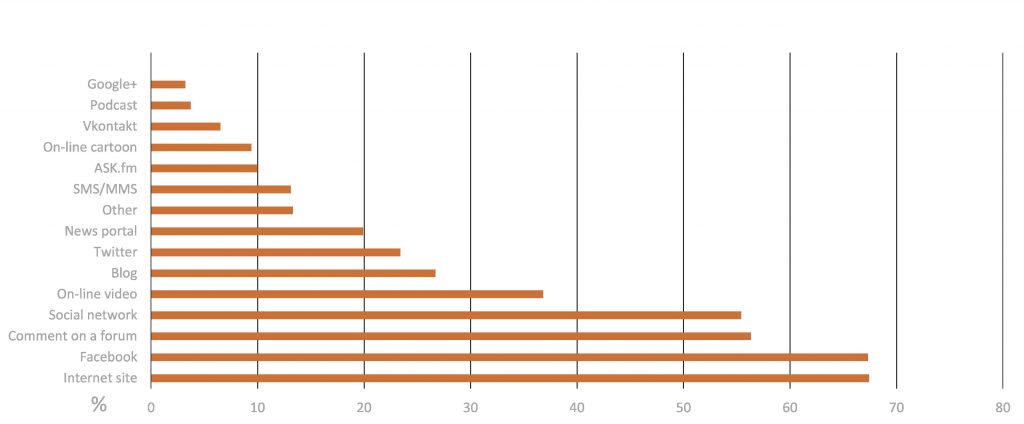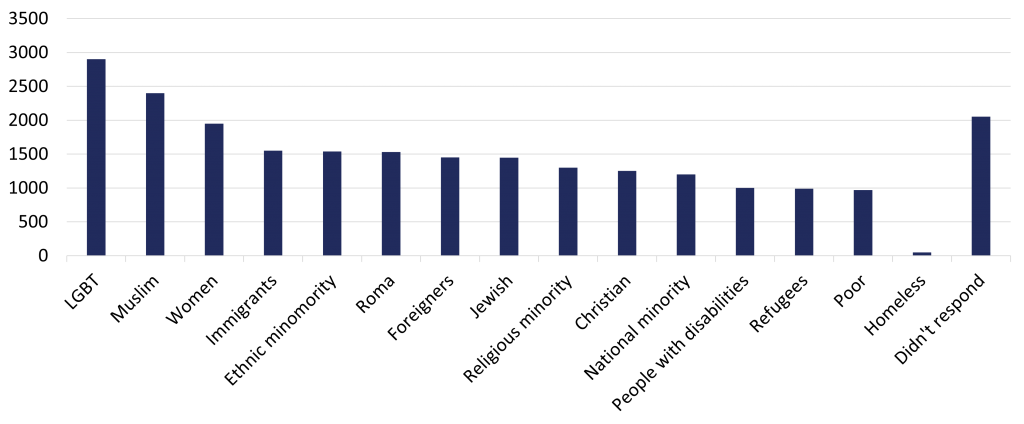
CHAPTER 1
B. When numbers speak on their own
Sometimes it is harder to imagine the real extent of a situation, unless one includes real evidence – numbers don’t lie! A lot of researches, surveys and reports, not only at a European but also at a global level, prove that the phenomenon of hate speech online is no longer a manageable task – it needs drastic action!
Hateful content can be found anywhere. Internet is offering the chance to all its users to openly express their opinion and find enough space to share their individual perspective on reality, sometimes including disrespectful and hateful content against others, groups or individuals. According to a 2015 online survey conducted by the National University of Ireland in the framework of the “NO HATE SPEECH MOVEMENT” of the Council of Europe, these are the most common communication platforms where hate speech prevails:

When talking about our own home, Europe, statistics related to young people and incidents of online hate are rather concerning, meeting no boundaries in regards to age, gender, social or financial status, profession, or sociopolitical beliefs:
of 9 to 16-year-old Internet users around Europe reported having been bullied online, while half of them (3 %) confessed to having bullied others.
of the respondents of an online survey of the Council of Europe stated they had encountered hate speech online on a regular basis, with the most recurrent targets of hate speech to be LGBT people (70 %), Muslims (60 %) and women.
of the 3.500 children aged 9-16 years old were at some point victims of cyberbullying.
of women have been abused online by becoming victims of hate speech and more than half of them believe that the Internet is not a safe space to express themselves.
of online bullies aged 16 years old confessed to having bullied people in person, and 55 % of online victims said they had also been bullied face‐to‐ face.
However, as mentioned before, hate speech online in all its forms is not a European issue – it is a global problem. For instance, according to a national school-based survey of 5,272 children and youth in Grades 4 to 11, conducted by the Media Awareness Network of Canada ‘Young Canadians in a Wired World’, on the topic of online bullying and exposure to hate:
• 25% of young Internet users report to have received e-mails with hateful material against others, with a disappointing 35% to not having reacted at all (report, respond etc.) and a 29 % having replied themselves (without asking for support or advice).
• Having in mind that a generous amount of 56% of all young Internet users use instant messaging, a 14% of those indicate that they’ve been threatened while using the relevant platforms/applications.
• 16 % of young Internet users admitted that they have been perpetrators of hate speech online through posting hateful comments toward other individuals or groups of people and the overwhelming majority of those (60%) were male.
According to the observations of the European Commission regarding the current trends of online hate speech, racism (with anti-Semitism receiving a generous portion of 10 % of the cases) seems to be the most common form, without this lowering in rank all the other forms of hate speech in the digital world. Nevertheless, the 2015 “NO HATE SPEECH MOVEMENT” online survey offers a clear idea of the most common topics provoking hate speech online:

This challenge was not at all disregarded by the European Commission, who in 2016 reached an agreement with the most widespread IT companies and social media platforms in developing the “Code of conduct on countering illegal hate speech online”, aiming to help Internet users to report illegal hate speech on these platforms and have it removed. The results of this initiative were surprisingly positive, as according to evaluations an average of 90 % of these reports is reviewed in less than 24 hours, while 71 % of them is removed. Indicatively, in 2019 Facebook has removed 7 million cases of hate speech in a period of three months with the support of artificial intelligence in the majority of the incidents.
And that is not all!
The next step for the European Commission is to updatedigital laws and adapt them to the need of today, through the Digital Services Act package (DSA), as part of the EU Digital Strategy, aiming to create a safer digital space in which the fundamental rights of all users of digital services are protected.
Although there is a lot going on in the legal framework and there has been a strong collective effort to help counter and prevent online hate speech, laws are never enough. And there is no doubt that the most powerful way to bring significant changes and create a better world is no other than an active, engaged and promising next generation!